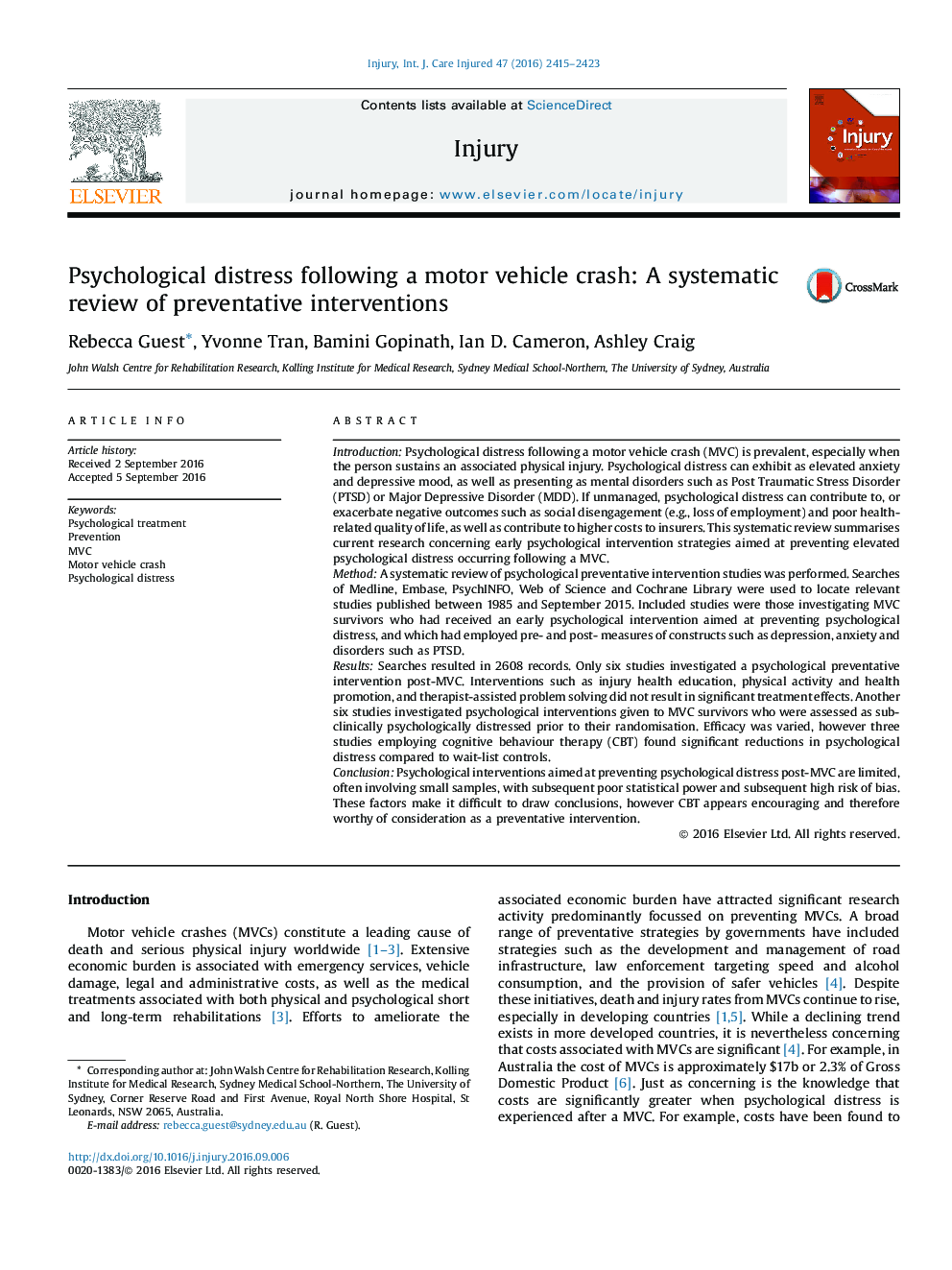| کد مقاله | کد نشریه | سال انتشار | مقاله انگلیسی | نسخه تمام متن |
|---|---|---|---|---|
| 5652934 | 1407230 | 2016 | 9 صفحه PDF | دانلود رایگان |
IntroductionPsychological distress following a motor vehicle crash (MVC) is prevalent, especially when the person sustains an associated physical injury. Psychological distress can exhibit as elevated anxiety and depressive mood, as well as presenting as mental disorders such as Post Traumatic Stress Disorder (PTSD) or Major Depressive Disorder (MDD). If unmanaged, psychological distress can contribute to, or exacerbate negative outcomes such as social disengagement (e.g., loss of employment) and poor health-related quality of life, as well as contribute to higher costs to insurers. This systematic review summarises current research concerning early psychological intervention strategies aimed at preventing elevated psychological distress occurring following a MVC.MethodA systematic review of psychological preventative intervention studies was performed. Searches of Medline, Embase, PsychINFO, Web of Science and Cochrane Library were used to locate relevant studies published between 1985 and September 2015. Included studies were those investigating MVC survivors who had received an early psychological intervention aimed at preventing psychological distress, and which had employed pre- and post- measures of constructs such as depression, anxiety and disorders such as PTSD.ResultsSearches resulted in 2608 records. Only six studies investigated a psychological preventative intervention post-MVC. Interventions such as injury health education, physical activity and health promotion, and therapist-assisted problem solving did not result in significant treatment effects. Another six studies investigated psychological interventions given to MVC survivors who were assessed as sub-clinically psychologically distressed prior to their randomisation. Efficacy was varied, however three studies employing cognitive behaviour therapy (CBT) found significant reductions in psychological distress compared to wait-list controls.ConclusionPsychological interventions aimed at preventing psychological distress post-MVC are limited, often involving small samples, with subsequent poor statistical power and subsequent high risk of bias. These factors make it difficult to draw conclusions, however CBT appears encouraging and therefore worthy of consideration as a preventative intervention.
Journal: Injury - Volume 47, Issue 11, November 2016, Pages 2415-2423
